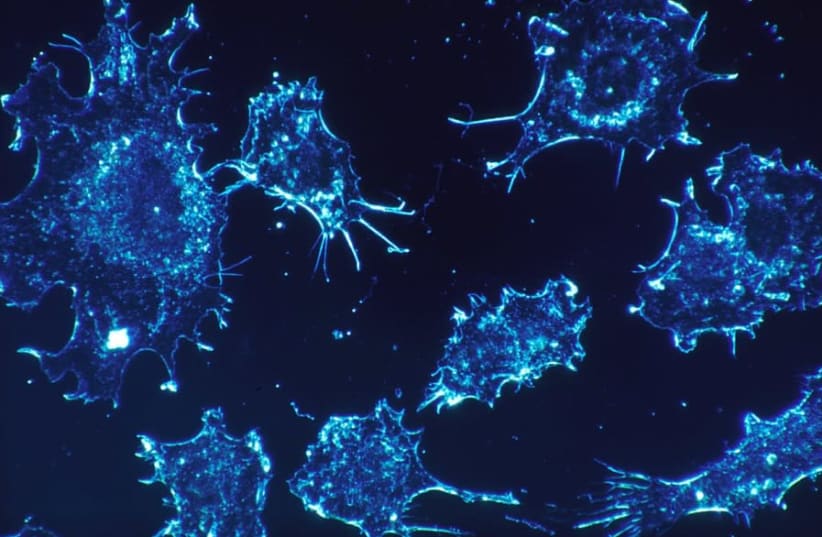A type of white blood cells known as eosinophils can help the body fight cancer, and are used to fight cancer metastasis (cancer cells breaking away from the original infection) in the lungs, a new study study from Tel Aviv University has revealed.
Prof. Ariel Munitz and doctoral student Sharon Grisauri of the Department of Microbiology and Clinical IImmunology at the Sackler Faculty of Medicine led the research, which was published in the academic journal Cancer Research.
Eosinophils are white blood cells in the immune system that produce destructive proteins, originally intended to fight parasites.
The team examined biopsies of the lung metastases from breast cancer patients. They discovered that eosinophils reach the lungs and enter the cancer tissues, often releasing the destructive proteins they carry.
High levels of hygiene, especially in the Western world, have significantly reduced parasites but eosinophils often react negatively to humans, as they introduce problems such as allergies and asthma.
"We chose to focus on lung metastases of many types of cancer," Munitz explained in a statement.
"First, metastases, and not the primary tumors, are often the main problem in treating cancer, and the lungs are a major target for the metastasis of many types of cancer. Second, in a preliminary study, we demonstrated that eosinophils gather in tumors developing in mucous tissues like the lungs, and therefore assumed that they would be found in lung metastases as well."
For the testing, the researchers used animal models. The results showed that lung metastases developed in the absence of eosinophils that were much larger than those exposed to eosinophils. The conclusion was that eosinophils fight cancer effectively.
But, how can eosinophils fight cancer effectively?
"We observed that when eosinophils are missing, the tissue also lacks T-cells – white blood cells known for fighting cancer," Munitz explained.
"Consequently, we assumed that eosinophils combat cancer through T-cells. Our next task was to understand the mechanism underlying this process."
In essence, the eosinophils release chemokines, which summons T-cells, whenever they come into contact with cancer. This, essentially allows for the eosinophils to call for reinforcements, backing them up to better fight the cancer.
These findings could help pave the way for improved cancer treatments in the future.

